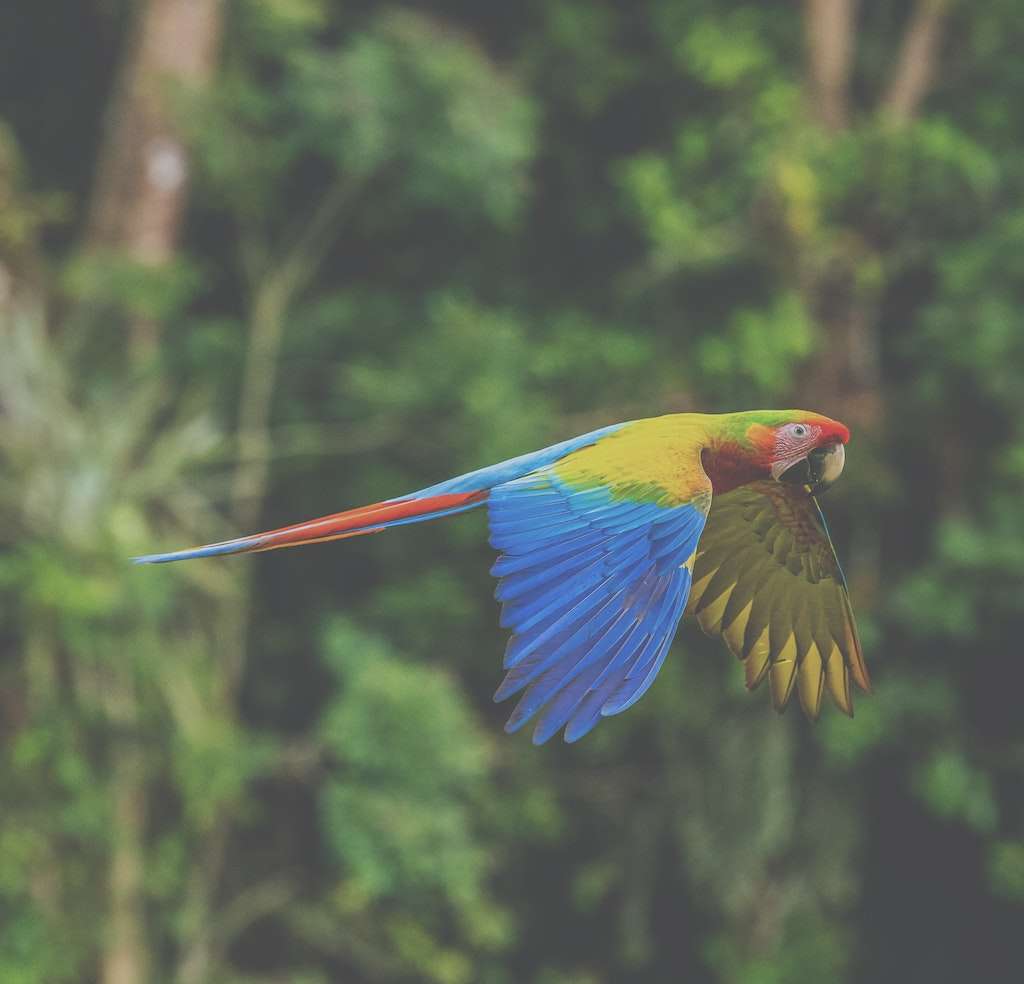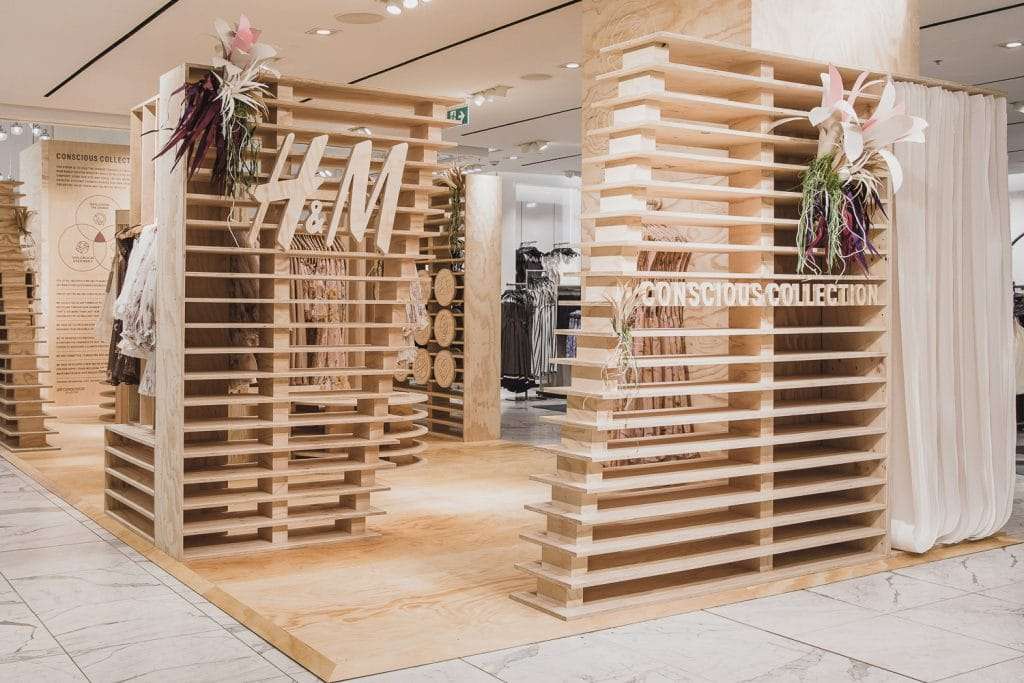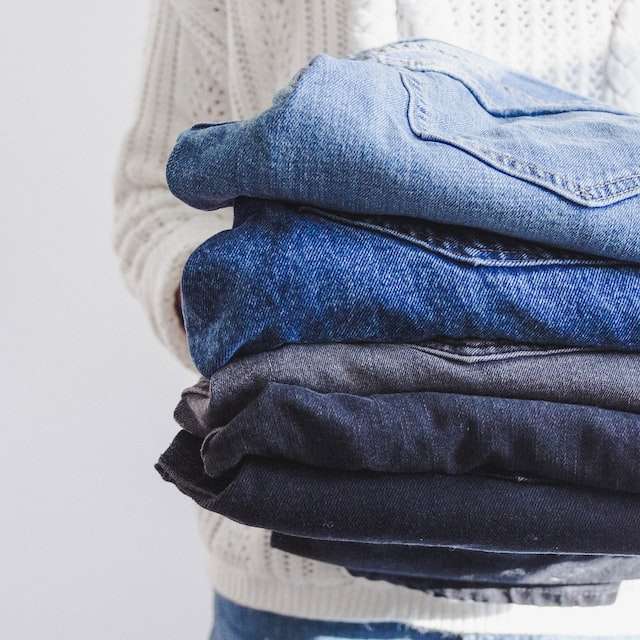Shoppers should think twice about their sustainable cotton purchases says a new report detailing extensive deforestation across Brazil’s Cerrado wilderness linked to fast-fashion giants H&M and Zara.
In the fight against a warming planet, reducing emissions tied to our clothing has emerged as one of the biggest challenges. Fast fashion giants, which are driving the fashion industry’s climate impact, continue to gain momentum despite consumer and legislative efforts to curb their growth. Now, a new report from U.K.-based investigative NGO Earthsight, points to rampant destruction across Brazil’s Cerrado wilderness tied to cotton production for Asia-based clothing manufacturers supplying two leading fast fashion giants, H&M and Zara.
According to the report, Fashion Crimes, the European retail giants linked to dirty Brazilian cotton, greenwashing is rampant in Brazil’s cotton industry; all of the cotton Earthsight traced was certified sustainable by the group Better Cotton. Nearly half of the cotton certified by Better Cotton comes from Brazilian cotton growers — more than any other country. But Better Cotton has faced recent accusations of greenwashing, lack of transparency, and failing to protect human rights. Better Cotton’s rules allow cotton from land illegally deforested before 2020, even if it was stolen from local communities, Earthsight said in the report. Its investigators say it’s nearly impossible to find a single large-scale cotton or soy farm in western Bahia that is not the result of land grabbing.

Earthsight says it spent more than a year analyzing satellite footage along with court rulings, shipment records, and sending people undercover at global trade shows to trace what it says are nearly a million tonnes of “tainted cotton” from some of the most notorious estates in Brazil linked to the fast fashion giants’ Asian suppliers. According to the report, Brazil’s biggest cotton producers are owned by the nation’s richest families. They have been linked to years of court injunctions, corruption rulings, and millions of dollars in fines related to at least 100,000 hectares of the Cerrado wilderness. Deforestation in the Cerrado rose by 43 percent last year — most at the hands of a few mega estates, the investigation claims.
Brazil’s cotton industry
“While we all know what soy and beef have done to Brazil’s forests, cotton’s impact has gone largely unnoticed,” Earthsight director Sam Lawson said in a statement. “Yet the crop has boomed in recent decades and become an environmental disaster. If you have cotton clothes, towels, or bed sheets from H&M or Zara, they may well be stained by the plundering of the Cerrado.”
Lawson says that while these companies often talk about good practices, social responsibility, and certification schemes, the investigation tells a different story. “It has become very clear that crimes related to the commodities we consume have to be addressed through regulation, not consumer choices. That means lawmakers in consumer countries should put in place strong laws with tough enforcement. In the meantime, shoppers should think twice before buying their next piece of cotton clothing.”
The Cerrado, which covers 25 percent of Brazil, is home to five percent of all the world’s species. In the last several decades, more than half of the Cerrado wilderness has been lost to clearcutting for agricultural production. Earthsight says that destruction is the equivalent of 50 million more gas-powered cars being put on the road each year. Hundreds of species are at risk of habitat loss and the region’s freshwater reserves have been decimated for cotton production.

Earthsight tracked more than 800,000 tonnes of cotton from the investigated estates to eight Asian firms that made nearly 250 million items of finished clothing and home goods for H&M, Zara, and Zara’s sister brands Bershka and Pull&Bear, among others. Brazil has drastically increased its cotton production in recent years with almost all of it growing in the Cerrado alongside soy grown for the beef industry. The report notes that by 2030, Brazil is expected to overtake the U.S. as the world’s largest cotton exporter.
The report accuses Brazil’s cotton industry of “blatant theft” of public lands and the dispossession of local communities. “People that have lived in harmony with the Cerrado for centuries are forced off their land, blocked from subsistence activities, subjected to surveillance, intimidation and cattle theft by estate gunmen, as well as shootings and other violent attacks on their leaders,” the group says.
Better Cotton scrutiny
As a result of the investigation, Inditex, Zara’s parent company, has demanded greater transparency from Better Cotton. In a letter to Better Cotton’s CEO, Inditex expressed concern over the lack of progress in the certification process and traceability practices, citing delays in receiving the results of an internal investigation promised since August 2023. The company emphasized the importance of trust in certification processes to ensure responsible supply chain management. Better Cotton said that it would provide more information once it had analyzed the results of the audit commissioned in response to the allegations. Better Cotton also mentioned ongoing revisions to its standards in Brazil, aiming for alignment with global sustainability benchmarks.
“The best thing we can do to reduce textile waste is to buy less,” says Andra Janieks, Director of Communications at the NGO 5 Gyres, which was not involved with the investigation. It is predominantly focused on plastic waste. But clothing is often a mix of materials, including plastic-based materials like polyester and nylon, as well as cotton — the agricultural crop most heavily reliant on pesticides. Janieks says fast fashion is a huge problem for the planet. “Our consumption habits need to change,” she told Ethos.

But, avoiding greenwashing can be a challenge for the consumer, especially when labels like H&M and Zara have been vocal about their sustainability efforts and launching collections making green claims. “There are a lot of misleading and greenwashing claims in the fashion world,” Janieks says. She says two helpful resources in vetting brands are Fashion Revolution’s Fashion Transparency Index and Remake’s Accountability Report, both of which assess leading fashion companies across several key issues. She also recommends The Good on You app, which she says is a “quick and easy way to search a brand on the go and immediately get a snapshot of their sustainability ratings and reasoning.”
According to Earthsight, a new E.U. Deforestation Regulation will force firms to trace some raw materials back to production that must be deforestation-free and legal, but it neglects cotton. “The same blind spot afflicts regulatory efforts in the U.S. and U.K., which are also limited to illegal deforestation,” the group says. Brazil’s efforts to reduce deforestation in the Cerrado also fail to address deforestation authorized by local governments, “leaving the door open to unsustainable policies at that level. It should instead halt all large-scale deforestation,” Earthsight said.
“We need brands to offer more transparency and clear labeling, disclosing information about their supply chains, materials, and production processes,” says Janieks. “We need to shift to a circular model by designing for durability and encouraging the reuse of materials through recycling and takeback programs. We need more research and innovation when it comes to developing solutions, like alternative materials and filtration. It’s going to take collaboration and industry-wide efforts to drive systemic change,” she says.
Related on Ethos:


